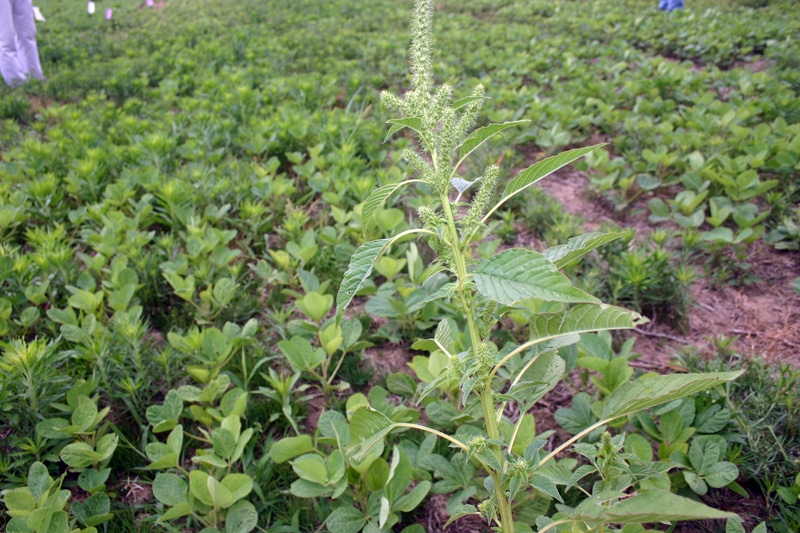June 25, 2012

My list of things that were not said at the recent National Summit on Strategies to Manage Herbicide Resistant Weeds is not all-inclusive, but until we can come to grips with some of them there is little hope of moving forward. The first one is glyphosate will continue to be driven to diminishing usefulness. It has failed on several major driver weeds now, and we will continue to find new driver weeds. Every speaker at the meeting skirted the issue, but the failure of glyphosate was why we were there.
Glyphosate has essentially become a grass herbicide in the South because it no longer controls Palmer amaranth, marestail and giant ragweed. We also have glyphosate-resistant goosegrass, ryegrass and johnsongrass. I predict it will eventually blow up on barnyardgrass and then it is a surfactant in Arkansas. This is not a slam at glyphosate. It is simply a fact that we must continue to learn to cope with.
Some seem to think this problem is simply a “Southern thing.” A highly respected colleague in the Midwest continues to tell me the “problem” simply will not get as bad up there because they have just enough more crop rotation, tillage diversity and herbicide diversity to prevent it. I cannot seem to convince him that the entire state of Arkansas is not planted to no-till cotton with only glyphosate being used. The Midwest is in for a rude awakening, because the same mindset that was here a few years ago now is in place there.
I have travelled extensively in the Midwest the past two years and there is glyphosate-resistant waterhemp, marestail and giant ragweed everywhere. Rather than implementing an extremely aggressive program of proactive resistance management, for the most part those guys are following us right off the cliff of denial. The same colleague has told me several times that because we have only switched to LibertyLink programs after glyphosate failed completely, we would lose Liberty or glufosinate as well. I acknowledged that it is a concern, but commented, “You guys have a chance to implement a LibertyLink rotation in the Midwest and perhaps save both technologies.” He agreed. I asked, “Are you recommending that to your farmers?” And the reply was, “No.”
I asked why and the response was: “We do not make herbicide-specific recommendations!” I predict that glyphosate will be driven to being a grass herbicide in the Midwest in two years. It is already there in some areas.
That exchange is in large part what was wrong with the meeting. It is going to take specific recommendations for a clear path forward — philosophy won’t cut it. LibertyLink certainly is not the total answer, but at this point it must be a specific part of the path forward (we must apply what we have learned with glyphosate). With the exception of one consultant from Arkansas (who had a lot to contribute but they never let him) who was on the program, glufosinate was not mentioned by a single speaker. In my opinion, the major theme of the Summit should have been about preserving glufosinate, and it was never mentioned. It is essentially too late to preserve glyphosate. Hopefully we can stop the bleeding, but it has failed on too many driver weeds to be the centerpiece of a program again.
We have four bullets left and again that was never mentioned. We have glufosinate now and dicamba, 2,4-D and the HPPD inhibitors in the foreseeable future. The future begins with preserving glufosinate and we are off to a bad start in the South. If we lose it to resistance in three to five years, there is no hope for the other technologies either. Each of them will go “three and out.” That sounds harsh and pessimistic. I am more optimistic than that, but that is why I feel a national symposium of bright minds totally was out of touch.
About the Author(s)
You May Also Like




